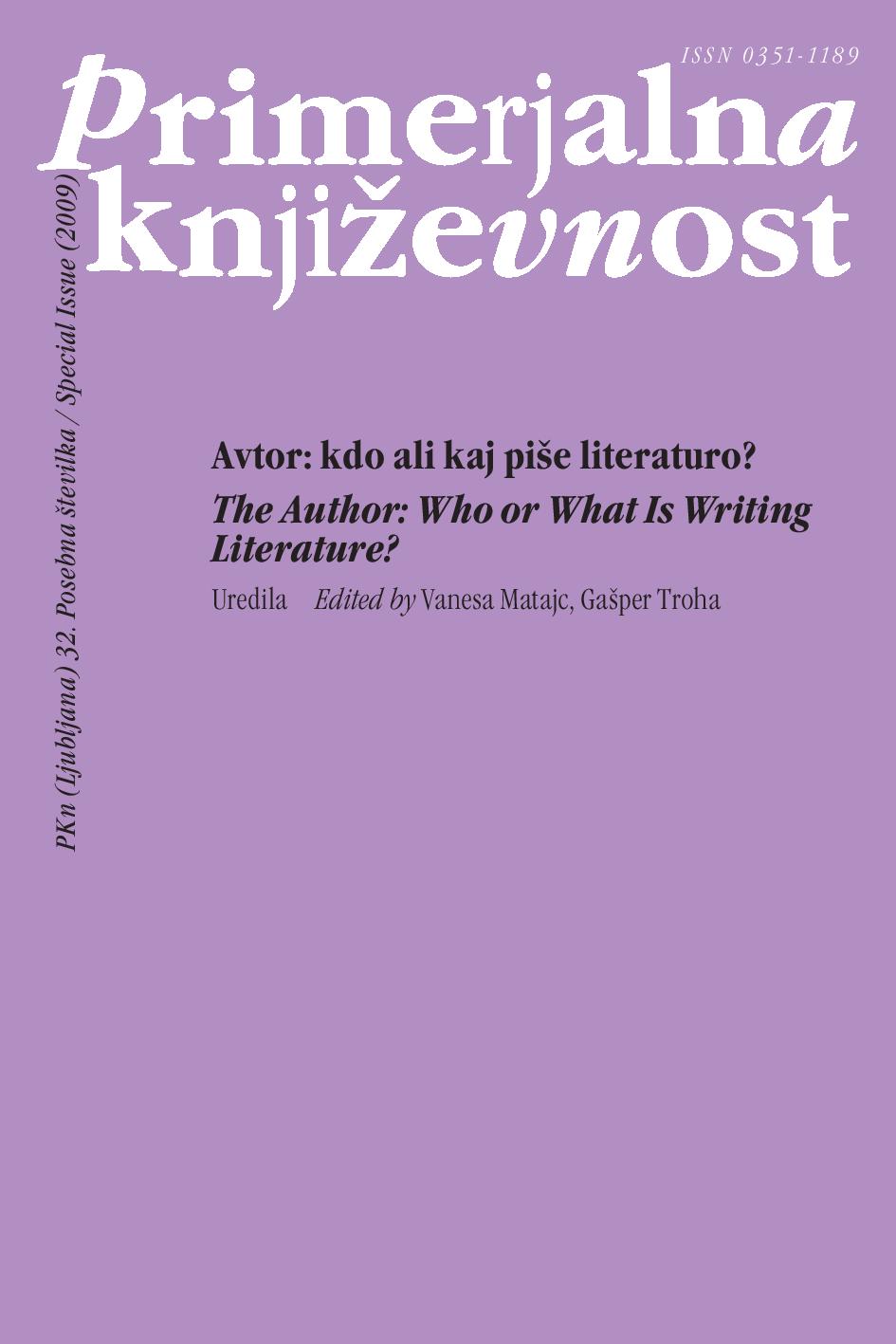The Digital Author? Authorship in the Digital Era
Keywords:
literature and technology, digital literature, internet, author, authorshipAbstract
Since the birth of the World Wide Web as the most successful application of the Internet there have been hopes of literary theorists (Landow, Bolter) that the new digital media would finally allow for the “death of the author” and the birth of the “writing reader”. The hypertext as new genre of text seemed to be powerful enough to fulfill the older hopes of the poststructuralists (Barthes, Foucault). – Although these euphoric hopes have been abandoned by literary theory for the most part, the Internet in the actual literary production still seems to have the power to be an “authorless” media in principle: In the oft-discussed encyclopedia Wikipedia the collaborative written text supposedly is more important than the authors. Literary experiments in the digital media are exploring how text can be written just by text-algorithms. These projects finally do not need writers anymore; they are using data taken from search engines. But this somewhat naive idea of an “authorless” digital media clearly can be refuted. First, the author has been revived by the new media and continues to thrive within it. Second, in contrast to the prediction of huge “authorless” collaborative text-production in online journalism, it is hard to find any collaborative works of literature. Third, even with collaborative projects or “codeworks” the function of an author does not disappear but is spread over different persons, which can even lead to a “dissociated” authorship. The author cannot disappear or “die” in the Internet, because its characteristics will not allow this to happen. Therefore the Internet does not stand for the “death” of the author; it actually appears to be a fountain of youth for literary authorship instead. These findings are discussed using recent experiments with authorship in digital literature.References
Barthes, Roland. »The Death of the Author.« Image, Music, Text. Ur. Steven Heath. New York: Hill and Wang, 2001. 142–148.
Bein, Thomas, Rüdiger Nutt-Kofoth, Bodo Plachta, ur. Autor – Autorisation – Authentizität. Tübingen: Niemeyer, 2004.
Bolter, Jay David. Writing Space. The Computer, Hypertext, and the History of Writing. Hillsdale, New Jersey: Lawrence Erlbaum, 1991.
Detering, Heinrich, ur. Autorschaft. Positionen und Revisionen. Stuttgart, Weimar: Metzler, 2002. (Germanistische Symposien-Berichtsbände 24).
Föllmer, Golo. Netzmusik. Elektronische, ästhetische und soziale Strukturen einer partizipativen Musik. Hofheim am Taunus: Wolke, 2005.
Foucault, Michel. »What Is an Author?« Language, Counter-Memory, Practice. Ur. Donald F. Bouchard. 10. Ithaca, NY: Paperback Print, 1997. 113–138.
Jannidis, Fotis, Gerhard Lauer, Matias Martinez, Simone Winko, ur. Rückkehr des Autors: Zur Erneuerung eines umstrittenen Begriffs. Tübingen: Niemeyer, 1999.
Landow, George P. »What’s a Critic to Do? Critical Theory in the Age of Hypertext.« Hyper / Text / Theory. Ur. George P. Landow. Baltimore, Md., London: Johns Hopkins University Press, 1995. 1–47.
plaintext.cc. Codework by Florian Cramer. 2005. http://plaintext.cc.
Search Lutz!. Performance art project and live broadcast by Johannes Auer, first performed at the festival RadioREVOLTEN. Halle (Saale), Nemčija. 30. 9. 2006. http://halle.netzliteratur.net.
The Bubble Bath. Hypermedia game by Susanne Berkenheger. 2005. http://www.thebubblebath.de.
The Famous Sound of Absolute Wreaders. Collaborative, intermedia project by Johannes Auer in cooperation with Reinhard Döhl, Sylvia Egger, Oliver Gassner, Martina Kieninger, Beat Suter. 2003. http://kunstradio.cyberfiction.ch.
Weimar, Klaus. »Doppelte Autorschaft.« Rückkehr des Autors: Zur Erneuerung eines umstrittenen Begriffs. Ur. Fotis Jannidis, Gerhard Lauer, Matias Martinez, Simone Winko. Tübingen: Niemeyer, 1999. 123–133.
Wetzel, Michael. »Der Autor zwischen Hyperlinks und Copyright.« Autorschaft. Positionen und Revisionen. Ur. Heinrich Detering. Stuttgart, Weimar: Metzler, 2002. 278–290.
Wirth, Uwe. »Der Tod des Autors als Geburt des Editors.« Digitale Literatur. Ur. Heinz Ludwig Arnold. München: Edition Text und Kritik, 2001. 54–64. (Text und Kritik, zvezek 152).
Woolley, Benjamin. Virtual Worlds. A Journey in Hype and Hyperreality. London: Penguin, 1993.


